Ditapis dengan
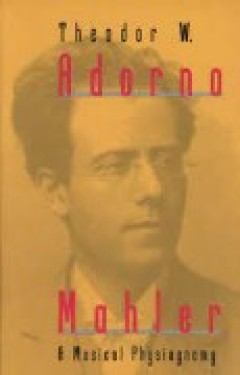
Mahler : A Musical Phusiognomy
Theodor W. Adorno goes beyond conventional thematic analysis to gain a more complete understanding of Mahler’s music through his character, his social and philosophical background, and his moment in musical history. Adorno examines the composer’s works as a continuous and unified development that began with his childhood response to the marches and folk tunes of his native Bohemia. Since…
- Edisi
- First Published
- ISBN/ISSN
- 0-226-00769-3
- Deskripsi Fisik
- x + 178 pgs.; 21,5 cm.
- Judul Seri
- -
- No. Panggil
- 780.924 ADO m
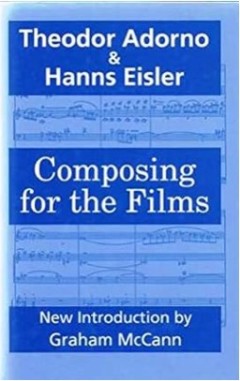
Composing for the Films
This classic account of the nature of film music aesthetics was first published in 1947. Its value comes from a unique combination of talents and experience enjoyed by the book's authors. Eisler's time at Hollywood gave him a particular insight on the technical questions which arise for composers when music is used in the production of films; while Adorno was able to contribute on wide aestheti…
- Edisi
- First Published
- ISBN/ISSN
- 0-485-11454-2
- Deskripsi Fisik
- liii + 171 pgs.; 21,5 cm.
- Judul Seri
- -
- No. Panggil
- 791.43 ADO c
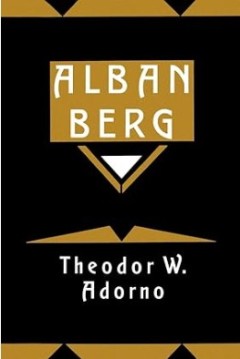
Alban berg : Master of the Smallest Link
Adorno's study of Alban Berg is a unique document. Itself now a part of music history, it is a personal account, by a pre-eminent philosopher and aesthetician, of the life and musical works of his mentor, friend and composition teacher. Shortly after Berg's death in 1935, Adorno contributed several analyses to the first Berg biography. Thirty years later he incorporated these chapters and sever…
- Edisi
- First Published
- ISBN/ISSN
- 0-521-33016-5
- Deskripsi Fisik
- xviii + 156 pgs.; 23 cm.
- Judul Seri
- -
- No. Panggil
- 780.92 ADO a
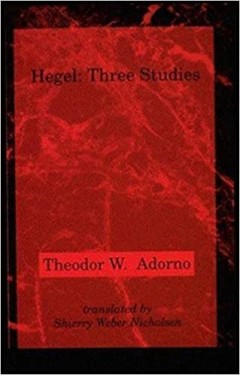
Hegel: Three Studies
This short masterwork in twentieth-century philosophy provides both a major reinterpretation of Hegel and insight into the evolution of Adorno's critical theory. The first study focuses on the relationship of reason, the individual, and society in Hegel, defending him against the criticism that he was merely an apologist for bourgeois society. The second study examines the experiential content …
- Edisi
- First Published
- ISBN/ISSN
- 0-262-01131-X
- Deskripsi Fisik
- xl + 160 pgs.; 23 cm.
- Judul Seri
- -
- No. Panggil
- 193 ADO h

The Stars Down to Earth and Other Essays on the Irrational in Culture
The essays collected here offer an analysis of the irrational dimensions of modern culture which is both timely and disturbing in the 1990s. Adorno's ideas are relevant to the understanding of phenomena as apparently diverse as astrology and "New Age" cults, the power of neo-fascist propaganda and the re-emergence of anti-Semitism, and the psychological basis of popular culture. The longest ess…
- Edisi
- -
- ISBN/ISSN
- 0415270995
- Deskripsi Fisik
- vii + 239 pg.; 25 cm.
- Judul Seri
- -
- No. Panggil
- 306 ADO s
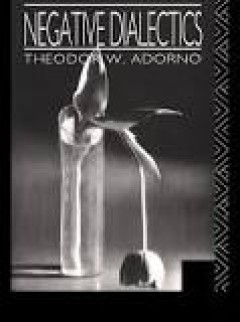
Negative Dialectics
The major work and Adorno's culminating achievement. Negative Dialectics is a critique of the philosophies of Kant, Hegel, and Heidegger, and a visionary elaboration of the author's own vision of dialectics.
- Edisi
- -
- ISBN/ISSN
- 0415052211
- Deskripsi Fisik
- xxi + 416 pg.; 21,5 cm.
- Judul Seri
- -
- No. Panggil
- 110 ADO n
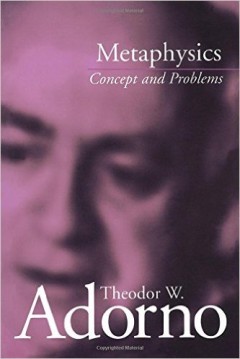
Metaphysics: Concept and Problems
This volume makes available in English for the first time Adorno's lectures on metaphysics. It provides a unique introduction not only to metaphysics but also to Adorno's own intellectual standpoint, as developed in his major work Negative Dialectics. Metaphysics for Adorno is defined by a central tension between concepts and immediate facts. Adorno traces this dualism back to Aristotle, who…
- Edisi
- -
- ISBN/ISSN
- 0804742472
- Deskripsi Fisik
- ix + 214 pg.; 26,5 cm.
- Judul Seri
- -
- No. Panggil
- 110 ADO m
 Karya Umum
Karya Umum  Filsafat
Filsafat  Agama
Agama  Ilmu-ilmu Sosial
Ilmu-ilmu Sosial  Bahasa
Bahasa  Ilmu-ilmu Murni
Ilmu-ilmu Murni  Ilmu-ilmu Terapan
Ilmu-ilmu Terapan  Kesenian, Hiburan, dan Olahraga
Kesenian, Hiburan, dan Olahraga  Kesusastraan
Kesusastraan  Geografi dan Sejarah
Geografi dan Sejarah